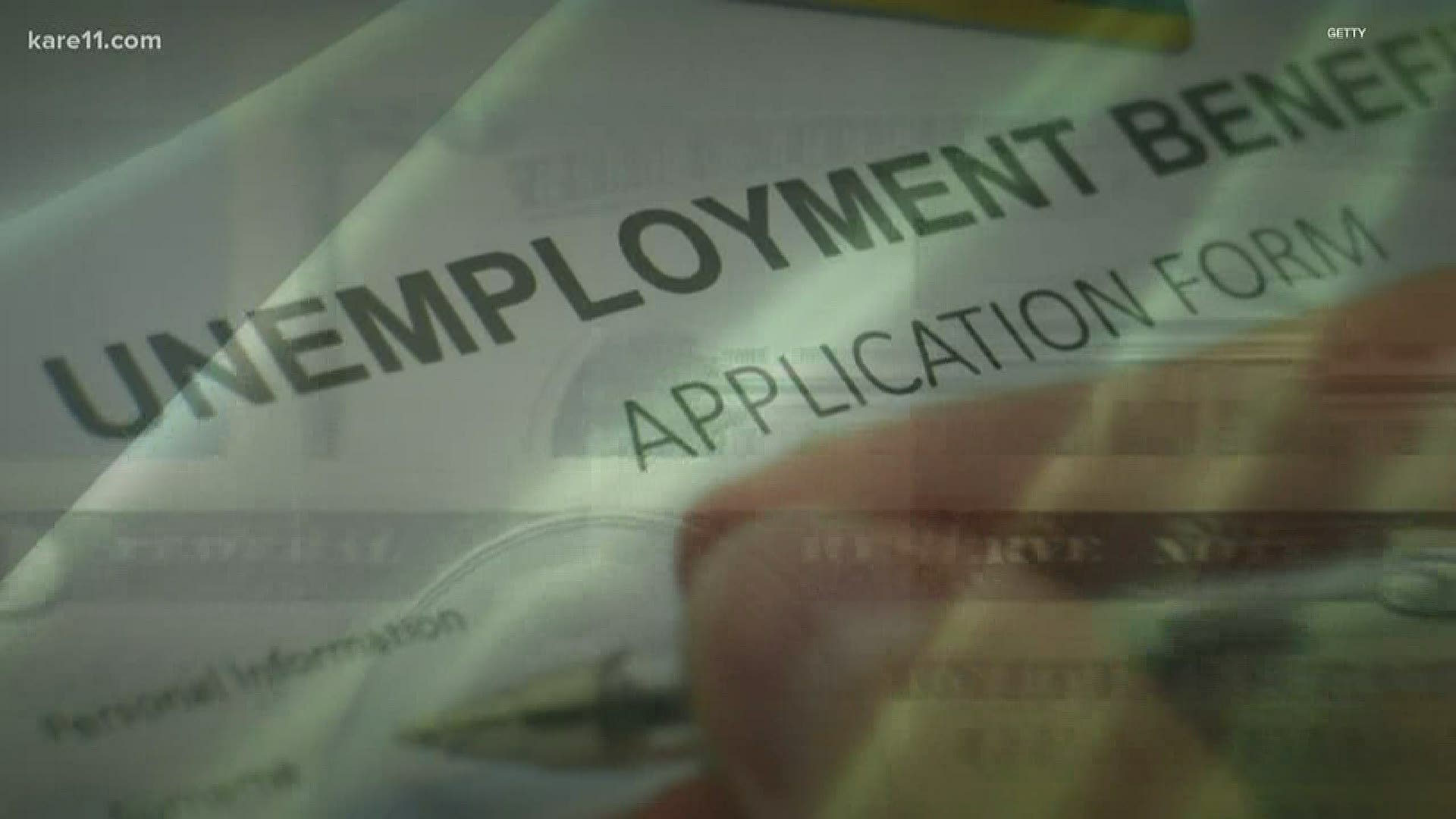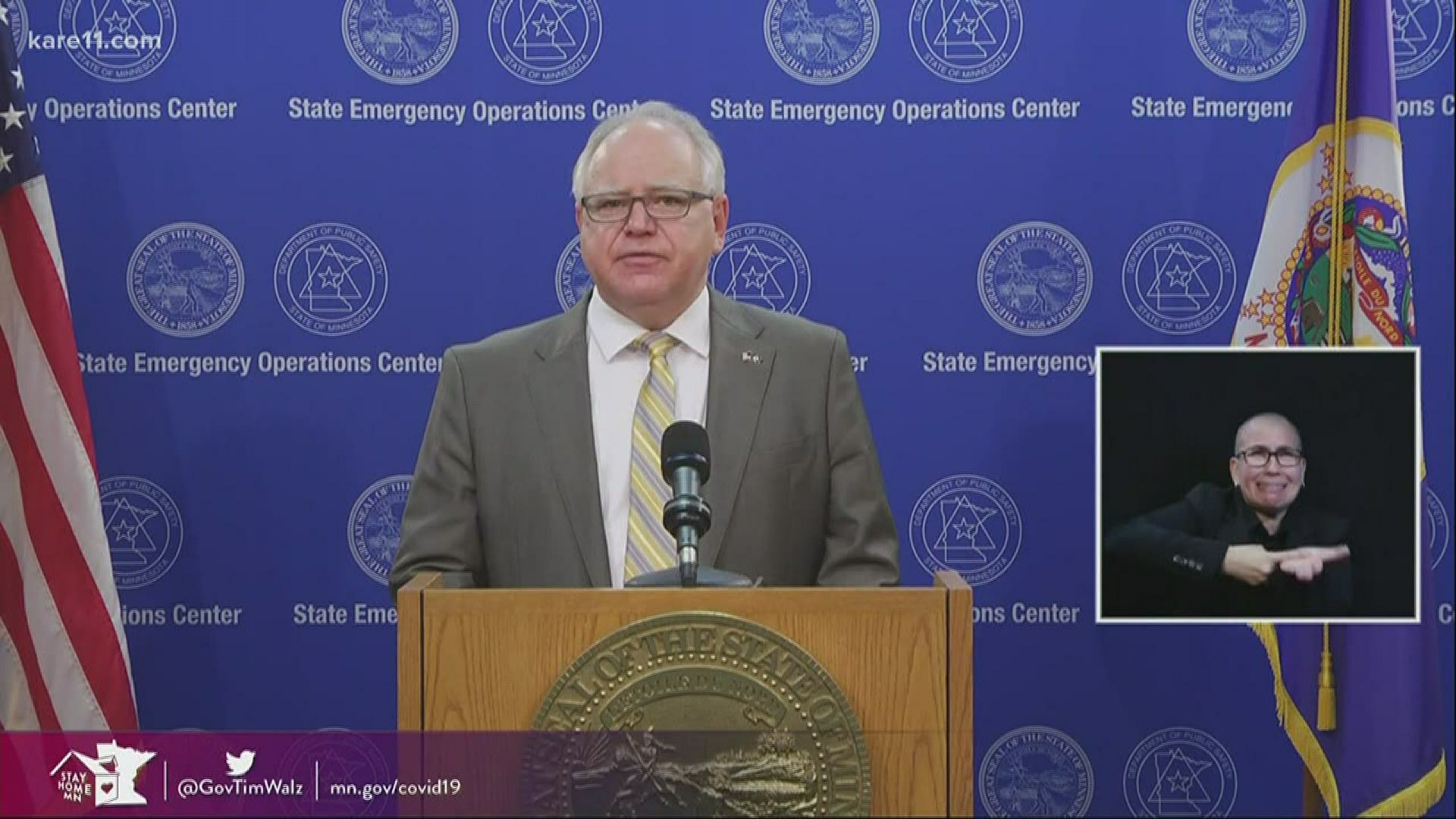ST PAUL, Minn. — A new budget forecast for the state of Minnesota shows the coronavirus pandemic is projected to sink the state into a multi-billion dollar budget deficit.
New projections released by Minnesota Management and Budget (MMB) for the 2020 and 2021 fiscal years now show a deficit of $2.426 billion. It marks a nearly $4 billion change from the previous forecast released in February, which projected a $1.513 billion surplus for the state at that time.
According to an MMB press release, revenues are expected to be $3.611 billion lower, while spending is expected to increase by $391 million.
MMB commissioner Myron Frans noted the state does carry a $2.359 billion budget reserve which can be used to mitigate the shortfall.
"Now is the time to use (this) rainy day fund," Frans said, though he also cautioned about relying on the reserve alone to overcome the deficit.
In the state's daily coronavirus press briefing, Frans and state economists said the uncertainty surrounding the coronavirus pandemic means the economic outlook will continue to be volatile.
"We should not overreact or underreact," Frans said.
Governor Tim Walz requested the updated economic outlook following the recent Stay at Home order due to the coronavirus pandemic.
Walz said the state cannot run a deficit, and added that tough but thoughtful decisions lie ahead..
"There's going to be shared sacrifice," Walz said. "There are some things we are going to have to do with the legislature."
Walz said everything is on the table to address the deficit, and asked budget officials to take every scenario into account in their forecasting, including the potential for job cuts or pay reductions for some government employees. However, the governor noted that the entirety of the state's payroll amounts to just seven percent of the budget, and he pledged to Minnesotans that any decisions would be made thoughtfully and by working with the legislature.
Walz also said federal funding could be a game changer in helping local governments meet some of their financial needs.
In response to the budget forecast, Republican Minnesota Senate Majority Leader Paul Gazelka released a statement saying Minnesota must re-open its economy, and said the state will need to get its spending under control.
“Today the Senate Rules Committee implemented a salary freeze for our own employees. We will likely impose a hiring freeze this month as well," Gazelka said in the statement. "The next most responsible move for state government is to renegotiate the second year of state employee contracts so thousands of state workers won’t face layoffs from budget shortfalls in the 2021 budget. We need to say, 'no' to any new spending increases that won't be reimbursed by the federal COVID relief funds or help us reopen the economy."
Gazelka also advised caution with the state's pending bonding bill.
“At the end of the day, we need to be able to look into the eyes of the small business owner and the laid-off worker and tell them state government is making sacrifices too," Gazelka said. "Empathy is not enough. Actions speak louder than words.”
DFL Minnesota House Speaker Melissa Hortman also released a statement in response to the budget forecast.
“While we expected the state's financial picture to worsen, I am relieved that the size of the projected deficit was not larger,” said Speaker Hortman. “Thanks to prudent financial management of the state's resources by the executive and legislative branches over the past decade, Minnesota has enough resources in the budget reserve and the cash flow accounts to weather the downturn. I'm pleased Minnesota has received $1.87 billion in federal aid, which allows us to take measures to provide economic security to Minnesotans to help them get through the COVID-19 downturn."
The current legislative session is scheduled to end on May 18, but the governor does have the power to call legislators back to work in a special session.


